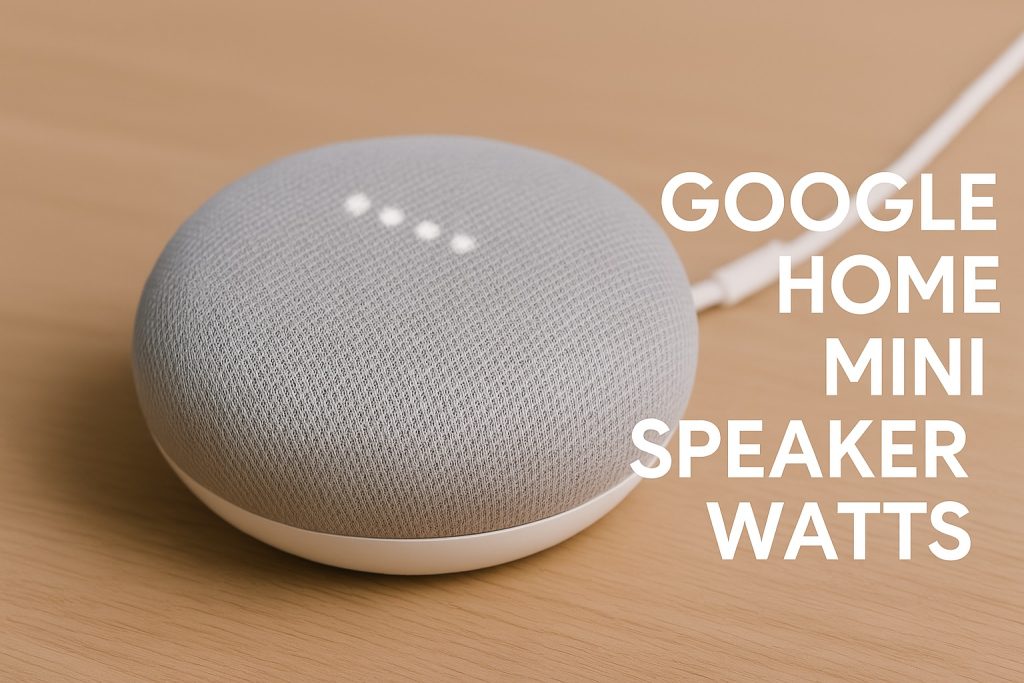
Google Home Mini Speaker Watts: Power Consumption Explained
When buying a smart speaker, it’s not just about features — it’s also about how much electricity it uses. With millions of Google Home Mini speakers sold worldwide, many users ask: How many watts does a Google Home Mini actually consume? Understanding the wattage is important if you’re calculating long-term energy costs or trying to minimize standby power draw. In this guide, we’ll break down the Google Home Mini speaker watts, standby vs. active power usage, and what that means for your electricity bill.
Google Home Mini Speaker Power Rating
The Google Home Mini speaker power consumption is modest compared to other smart devices:
-
Idle (standby, Wi-Fi connected): ~1.5–2 W
-
Playing music at medium volume: ~3–4 W
-
Maximum volume: ~7 W
-
Annual consumption (average use): ~12–15 kWh
By comparison, a traditional 60W incandescent light bulb can use 60 kWh in just 1,000 hours. Clearly, the Google Home Mini is extremely energy-efficient.
Google Home Speaker Watts vs. Other Models
-
Google Home Mini (1st gen): 2–7 W
-
Nest Mini (2nd gen): slightly lower idle usage (~1.2 W)
-
Google Home full-size speaker: 5–9 W
-
Smart displays (Nest Hub): 7–15 W
This shows that the Mini line is among the lowest-power devices in Google’s smart ecosystem.
Does Google Home Mini Use Electricity When Idle?
Yes — the speaker remains always connected to Wi-Fi to listen for the “Hey Google” wake word. This means it consumes electricity even when not actively playing audio. Fortunately, at around 1.5 W, this standby usage translates to less than $2 per year in most households.
Can You Make Google Home Whisper to Save Power?
Lowering the volume (or enabling night mode) doesn’t significantly reduce wattage, but it does make the speaker less intrusive. While “whisper mode” is not a dedicated power-saving feature, it can improve usability without affecting energy draw.
Tips to Minimize Google Home Wattage
-
Unplug when unused for extended periods (e.g., vacations).
-
Group devices and turn off multiple speakers via smart plugs.
-
Use Nest Mini if upgrading — it has improved energy efficiency.
Final Thoughts
The Google Home Mini speaker watts are surprisingly low. At peak use, it consumes less power than charging a smartphone. While it does draw a small amount of standby electricity, the yearly cost is negligible. If you want a smart speaker with minimal impact on your energy bill, the Google Home Mini (and its successor, the Nest Mini) remain excellent choices.
Light switch – Wikipedia
Pair your Google Mini with thousands of audiobooks!
Get an Audible Premium Plus Free Trial and enjoy hands-free storytelling.